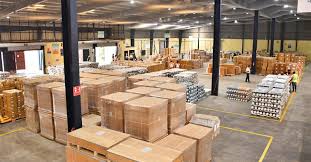Shobhit Bhatnagar, Director, Operation & Business Development, Dedicated Freight Corridor Corporation of India, addresses the complexities of managing oversized shipments. Innovations like Trucks on Train (ToT) and digital systems streamline operations, while calls for simplified regulations and infrastructure improvements support efficiency amid rising costs and logistical challenges.

A unified permitting system would simplify and streamline regulatory processes
Shobhit Bhatnagar highlights the unique complexities of project cargo logistics, especially in handling oversized or high-value shipments. The coordination required across multiple transport modes, such as rail, road, and sea, presents logistical challenges that demand meticulous planning and real-time adaptability. Weather unpredictability, route availability, and specific cargo handling needs add layers of complexity, pushing logistics operators to find innovative solutions to ensure seamless, end-to-end connectivity.
Innovative solutions for oversized cargo
To address these challenges, solutions like the integration of trucks on trains have been designed to ease movement over long distances while minimising road congestion. These services provide logistical flexibility by combining the strengths of rail and road transport, enabling entire trucks to travel on specially adapted flat wagons. This hybrid solution not only enhances operational efficiency but also promotes safety and reliability, which are critical for handling high-value goods.
Addressing infrastructure constraints
Infrastructure limitations, such as port capacity constraints, substandard road conditions, and the availability of skilled labour, can significantly impact project cargo logistics. For instance, congestion at ports can disrupt tightly coordinated schedules, while limited road infrastructure hinders timely cargo transport to rail and other facilities. The introduction of multimodal logistics solutions, such as trucks on trains, helps alleviate these constraints by offering alternatives that bypass road congestion and provide reliable transport scheduling. Additionally, this approach supports driver well-being by ensuring rest breaks and enhancing service quality through improved workforce efficiency.
Streamlining regulations and policies
Project cargo logistics faces regulatory complexities, including the need for multiple permits across various states, which often results in delays. Simplified and standardised regulatory policies, such as a unified permitting system, would allow for more streamlined processes. Additionally, a single-window digital clearance system could reduce processing times, making operations smoother and more efficient. Policies encouraging multimodal facilities and dedicated freight corridors also help reduce bottlenecks, facilitating a more efficient flow of goods.
Adapting to economic pressures
With rising fuel prices and transportation costs, maintaining cost-effective project cargo operations is increasingly challenging. Given the fuel efficiency of rail transport, logistics operators are turning to rail-based solutions to counterbalance these rising expenses. This shift offers a more sustainable and economically viable option for long-haul cargo transport, especially for oversized loads that may be more costly to move by road alone.
Digitising documentation for agility
Documentation and permits are vital but often time-consuming in project logistics. Digitisation efforts, such as an integrated online booking and payment system, streamline administrative tasks and reduce delays, allowing for faster customs processing and more agile operations. Such advancements align with the industry’s mission to modernise cargo management, offering clients the convenience of digital access to cargo services, booking, and tracking.











